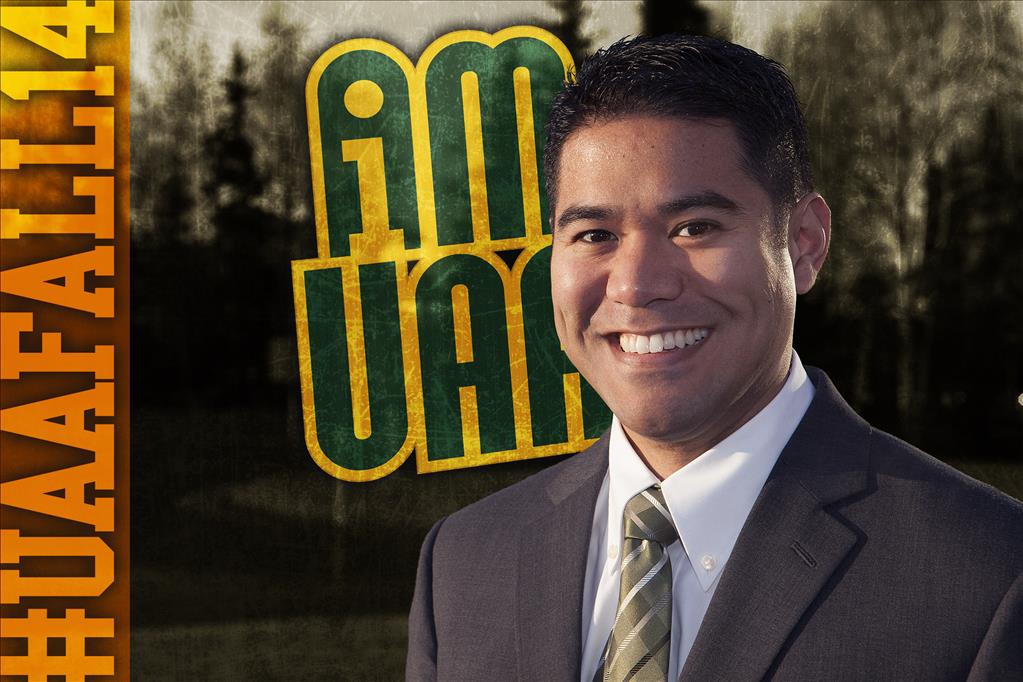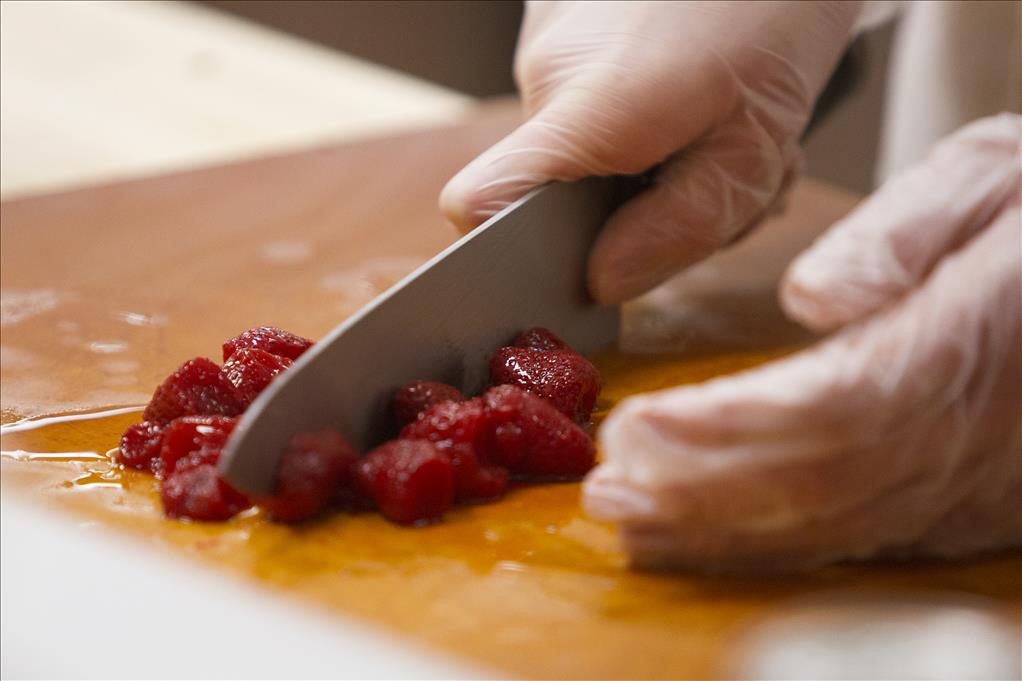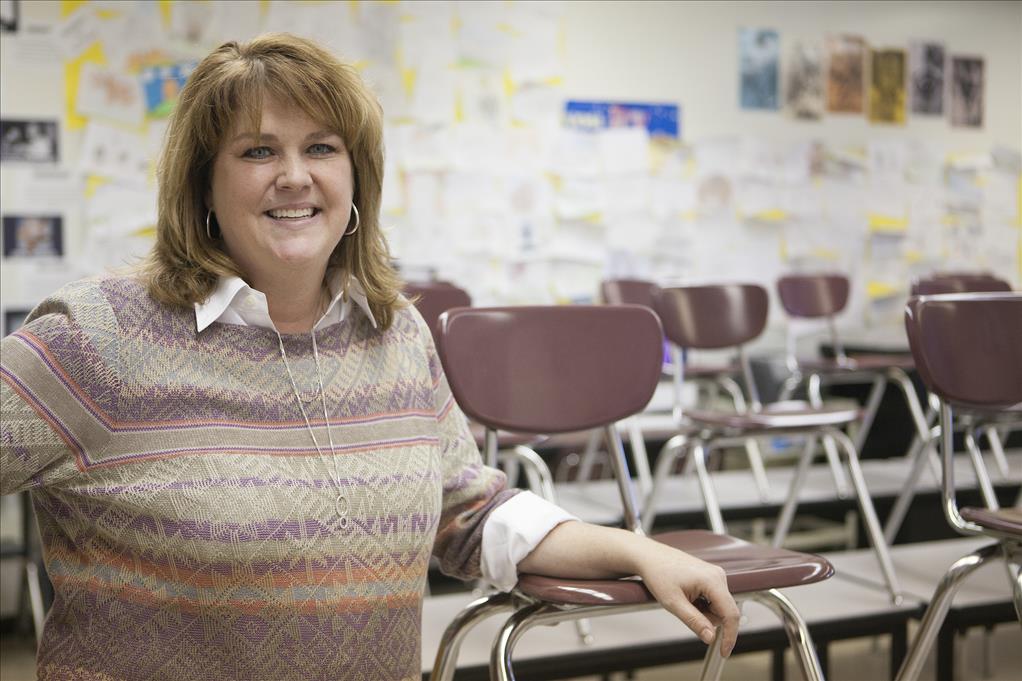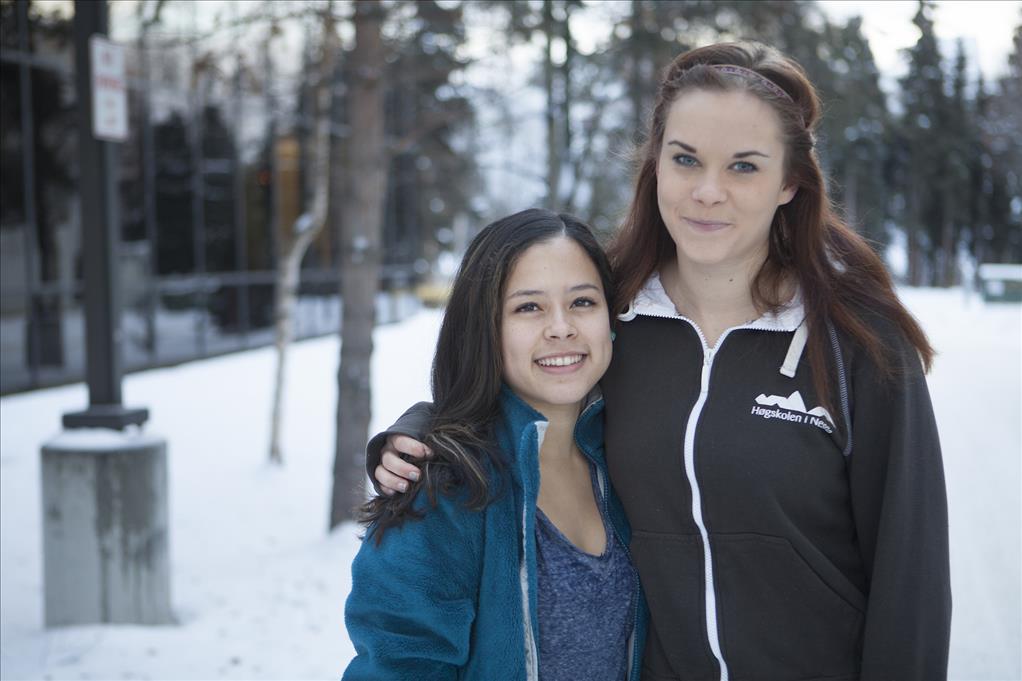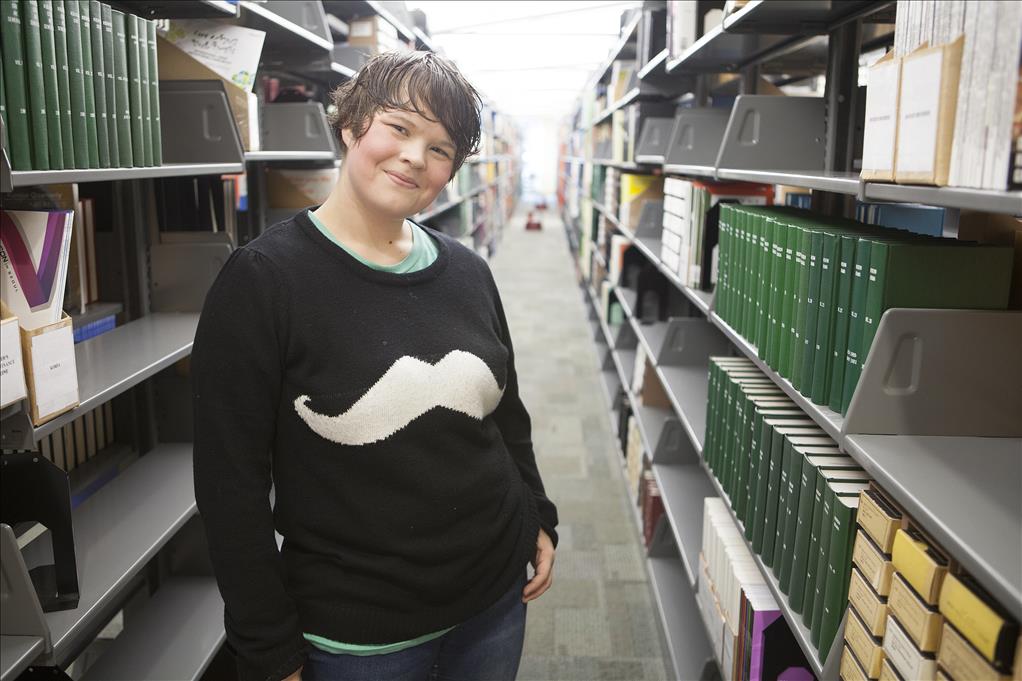Finding fluency in a new culture
by Tracy Kalytiak |
When Jaeyeon Cho was 7, she crafted a toy box out of cardboard boxes, decorating the outside with cartoon characters. Creating art engaged her, so Cho went on to explore painting, origami and beading, and created model towns with recycled plastic bottles and snack packaging.
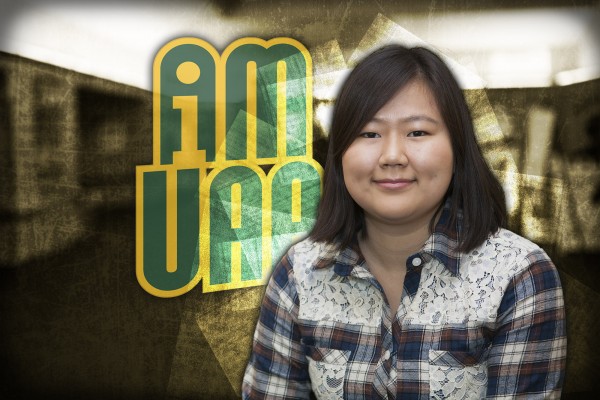
Jaeyeon "Jenny" Cho, a UAA international student from South Korea, plans to attend dental school, travel and use her skills to help people in far-flung areas who need dental care. (Photo by Philip Hall/University of Alaska Anchorage)
Science gripped her attention a few years later, offering a new way for Cho to express herself.
Cho wanted to merge both of her passions into one fulfilling career, but didn't know how she would do that until experiencing an epiphany.
"On a field trip to a hospital, I watched with fascination as the dentist's hands performed intricate work inside the patients' mouths, reminding me of the meticulous creation of works of art," said Cho, who won UAA's Student Diversity Award for Spring 2014. "I thought, 'I can do this through a career in dentistry.'"
Exploring fresh horizons
Cho was born in Seoul, South Korea, daughter of a Japanese-food importer and a math major turned "traditional mom."
Her parents liked traveling while Cho was young. They took her and her two brothers to verdant Jeju Island in the Korea Strait between South Korea and Japan and to ceramics festivals in Lee-chun and Yu-joo. They climbed 5,600-foot Seorak and 6,283-foot Jiri mountains, saw some of Korea's ancient Buddhist temples and skied at resorts tucked into the country's undulating terrain. The family traveled outside Korea as well, visiting places like Disneyland and the Grand Canyon.
When she was 14, Cho traveled with her cousin to Bournemouth, England, to study English and attend a small private middle school.
"The change was fun as well as a challenge," she said. "I explored different places, ate interesting foods and learned the culture and language. The hard parts of being away from home were that I missed family and friends a lot and also faced some language barriers. I took extra hours to finish simple assignments, to read textbooks and prepare for tests. Thankfully, I had good friends and teachers who understood my difficulties and helped me during the process of learning English."
Two years later, Cho's cousin finished her degree and Cho had to decide whether she wanted to return to South Korea or travel to another English-speaking country to continue learning the language.
"My parents suggested Alaska, where my aunt and uncle live," she said.
'Nothing is impossible'
Cho first visited Anchorage seven years ago, in summer, and decided to move here.
"My first impression was that it was full of nature, as mountains surround the city and wild animals walk across the streets," she said.
She enrolled at Anchorage Christian School and struggled in her new environment. "Especially, I was profoundly discouraged by my disability of English as a second language and poor grades," she said.
Cho confronted her difficulties. She spent extra hours completing her assignments: reading a story three times or more, looking up words, expanding her vocabulary, taking notes, preparing for class discussions.
"As I put my time and effort into my studies," she said, "I saw continuous progress and learned a valuable lesson-nothing is impossible if I try my best."
Cho's interest in science blossomed during high school anatomy and physiology, when her classes-which had limited access to lab facilities-discussed current global scientific issues. English still felt foreign, but Cho discovered ease and fluency in science's calculations, measurements and orderly Latin terminology.
After finishing high school, Cho enrolled in science courses at UAA, entered the UAA University Honors College and decided to major in biological sciences.
"Foundational courses like principles of genetics and principles of microbiology required me to think critically and apply facts to solve problems," she said. "In organic chemistry, although the plethora of reaction mechanisms almost overwhelmed me, I came to enjoy putting together pieces of chemical puzzles. Science courses challenge me to focus and persist."
Pursuing her calling
UAA offered Cho the opportunity to explore different nuances and disciplines of science. For four semesters, Cho helped the Anchorage Youth Development Coalition and Dr. Gabriel Garcia-a UAA assistant professor of public health she describes as her mentor-launch a project called "Start the Conversation." They provided a packet to parents of Anchorage middle-schoolers, containing information about the importance of engaging families in having more meals together. The packets contained recipes, tips for starting a conversation during meals, parenting resources and a parent's handbook for raising healthy teens.
The project, Cho said, enabled her to interact with people of varying ages and improve her skills in designing surveys, compiling and analyzing data and using statistics software. Afterward, Cho presented her research at a UAA Community Engagement & Learning forum.
Cho also worked on a project funded by the Alaska Heart Institute, researching the role of a gene associated with a rare genetic disorder, Williams syndrome, in early stages of heart development in the African clawed frog. She presented her findings earlier this year at the UAA Undergraduate Research & Discovery Symposium.
Becoming a dentist is still the goal Cho is working toward, however. She has observed oral surgeons, orthodontists and pediatric dentists at Southcentral Foundation and job shadowed for an Anchorage dentist, Dr. Stephen Howard.
She hopes someday to meld dental studies with travel and public service.
"I had a chance to talk with Dr. [Thomas] Kovaleski, dental director at Southcentral Foundation, and he inspired me," Cho said. "He serves dental care [not only] in local Alaskan communities, but also countries such as Vietnam, Mexico and African countries."
Cho applied to dental schools last summer, interviewed with them this fall and is awaiting an official letter of acceptance. Those letters are sent out in December, so she doesn't know yet where she will be attending dental school next year.
Healthy, properly functioning teeth are critical to a person's quality of life, Cho said.
"I met a patient who had worn ill-fitting partial dentures for years, avoiding chewy foods and becoming embarrassed whenever his dentures fell off," she said. "Immediately after two central incisor implants, he felt his new teeth with his tongue, then looked at them in the mirror. A smile spread across his face as he thanked the dentist."
Finding common ground
When she first began studying in Alaska and at UAA, Cho found her difficulties with English created social difficulties.
"It is very hard to be in the group and connect with others," she said. "As a quiet, introverted person, I was not comfortable in some classes where I had to speak out. I always thought that words are powerful and I need to be careful about what I speak, take enough time to think and understand both sides before I give my opinions. Also, in my culture, being quiet shows I am listening and respecting the speaker, yet in Western culture, being quiet shows I am not interested in and have no opinion about the topic."
Now, Cho lives in an apartment with her two brothers-one is a UAA accounting student, the other is nine years younger and attends school in Anchorage. She misses food from her homeland, which she last visited two years ago-"The food, all the food my mom cooked, the kimchi my grandma shared with everyone"-so she and her brothers frequently cook Korean food and try out recipes they find for it on the Internet. Cho and her brothers reunite with their parents for vacations in other locales and stay in contact via email and phone.
"It's really nice to do the Skype," she said.
Cho's insights gleaned from her first experiences in Alaska motivated her to help others who share the experience of being an international student. She works as a student staff member at UAA's Multicultural Center, where she spends much of her outside-of-class time reaching out to other students hailing from nations in Asia and the Pacific Islands.
She helped found the Asian Pacific Islander Community Wellness Club, which presented a display to raise awareness of API health issues, hosted the Asian Pacific American Heritage Month and received the UAA Outstanding Community Service Program and Outstanding Multicultural Program awards.
"The most valuable lesson I've learned here is the importance of being respectful and open-minded to others," she said. "Knowing the importance will create more opportunities to learn new things-language, history, culture-and interact with people from diverse backgrounds."
Written by Tracy Kalytiak, UAA Office of University Advancement.
 "Finding fluency in a new culture" is licensed under a Creative Commons Attribution-NonCommercial 4.0 International License.
"Finding fluency in a new culture" is licensed under a Creative Commons Attribution-NonCommercial 4.0 International License.










